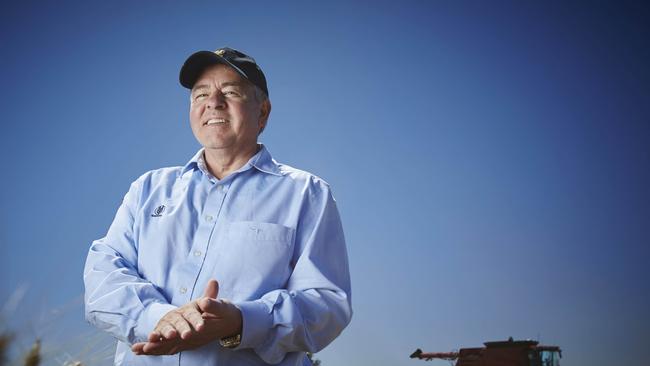2019 CEO Survey: Mark Palmquist, Graincorp
Australia needs a national approach to the impact of drought on agriculture and regional communities, says Graincorp’s boss.

Every year The Australian’s John Durie asks some of the biggest names in Australian business five key questions about what’s coming in the year ahead.
Here, in his own words, is what Graincorp MD Mark Palmquist sees ahead in 2020.
Read more from the 2019 CEO Survey.
How is your company affected by low-interest rates and what is needed to boost the economy?
Low-interest rates generally help to simulate investment which is a positive for the Australian agricultural industry. Economic growth would be assisted through government investment in infrastructure (e.g. road and rail); a reduction in global trade protectionism; more clarity on Australian energy policy; continued improvements in farming productivity.
What is the impact of government regulations on your company, including those applying to the financial sector?
Certain GrainCorp ports operate under codes of practice and codes of conduct, which can add cost and complexity to operations.
What percentage of company revenues are spent on research and development, and how is your company using technology to improve performance?
GrainCorp continues to develop its “CropConnect” platform, a mobile-optimised website that enables participants to instantly manage, sell and buy their warehoused grain. The company has utilised blockchain technology for supply chain management/traceability and the Internet-of-things/sensors to improve quality control and real-time stock monitoring for grain and oilseeds.
What are the three major policy issues facing the country and what should be done about them ?
● Energy prices: a more comprehensive and clear energy policy to improve the cost competitiveness of Australian industry;
● Drought policy: a national approach to manage the impact of drought on agricultural industries and regional communities; and
● Global trade: free trade with major trading partners
What are the major impediments to long-term growth facing your company and what can or is being done about them?
Australian grain and oilseed supply chains are expensive compared to many global competitors, which places Australia at a competitive disadvantage in export markets. It is important that Australian governments continue to invest in rural and regional infrastructure, particularly road and rail, to help bring down supply chain costs. Free and open trade, without protectionist policies, are important for Australian grain growers and GrainCorp, as this levels the playing field and opens export markets for Australia.




To join the conversation, please log in. Don't have an account? Register
Join the conversation, you are commenting as Logout